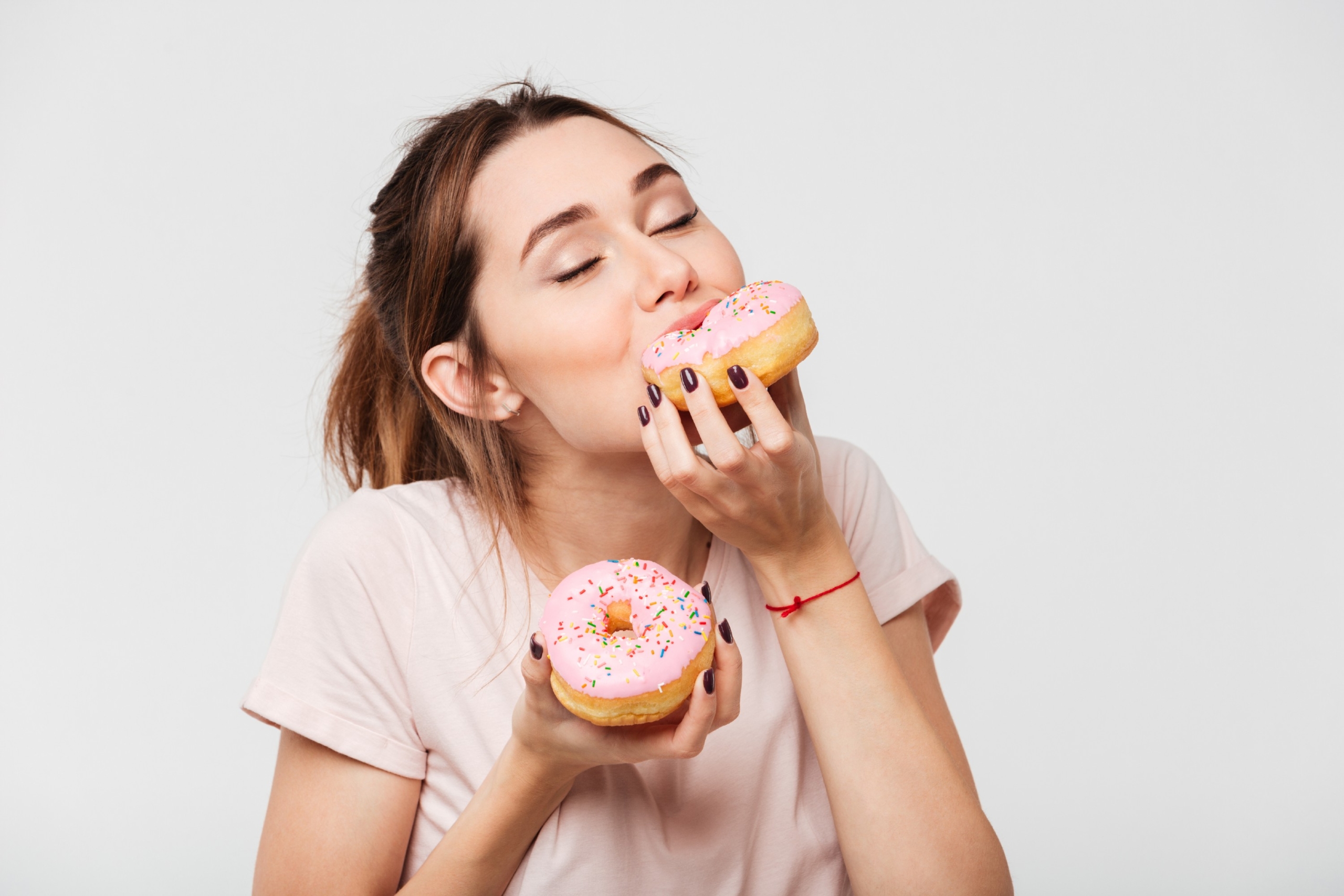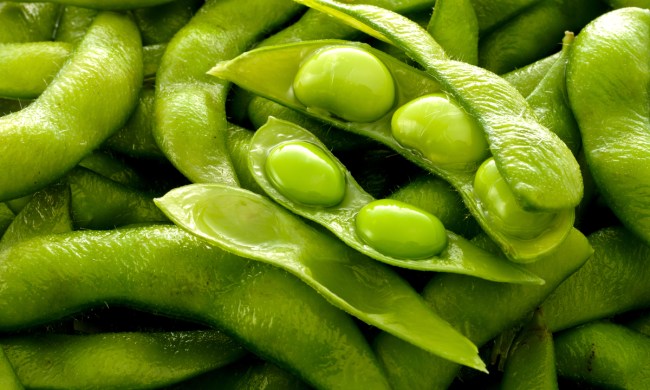We’ve all been there: the 4 p.m. lull hits, and you reach for a cookie or candy bar to perk you up with a sugar rush. Of course, that sweet treat isn’t really doing your brain or your body any favors, but it’s satisfying at the moment.
There are a few reasons we experience this “must-have-it-now” compulsion. It is common to crave sugar when you are exhausted or have had a bad night of sleep. Sweet cravings can also indicate low blood sugar levels or other mineral and nutrient deficiencies. Or maybe, you’re just stressed out and your sweet tooth provides comfort.
No matter the cause for your deep desire to eat and drink sweet foods and drinks, be wary of excess sugar consumption, as it is incredibly addictive. While breaking that late afternoon habit is easier said than done, there are tried-and-true methods to limit your processed sugar intake, embracing a healthier diet of natural sweetness.

Tips to Stop
Want to know how to quell your sugar cravings? The urge to splurge may feel too strong to resist, but there are a few tactics you can try:
Indulge within reason
The heart wants what it wants, and sometimes the best way to take care of a craving is to give in. Don’t feel guilty about treating yourself in moderation. This is great practice in listening to your body and indulging in appropriate amounts. Additionally, having a sweet treat now and then can prevent sugar binges down the road.
If you have a condition like diabetes that requires consistent monitoring of blood sugar levels, be extremely mindful of how you choose to consume sugar-laden products.
Plan your meals
When you’re hungry, your decision-making skills become impaired. You’re unlikely to make smart, healthy choices when it comes to deciding the easiest way to alleviate that hunger. This means you probably don’t have the patience to prepare and cook a whole meal. Instead, you may be tempted to stop for fast food or snack on the closest sugary treat. To avoid these impulsive decisions, try planning your meals in advance.
Don’t skip meals
Keep your blood sugar steady and prevent cravings by eating multiple small meals throughout the day, with the most important being breakfast. Have protein and fiber-rich snacks at the ready, which provide quick energy and keep you feeling fuller longer. A handful of nuts and a serving of cheese can also do wonders to tide you over until your next meal.
Last, with each meal, pour yourself a glass of water. Some H20 can invigorate and refresh you, quelling cravings and helping you feel fuller, longer.
Stack your diet with protein and good fats
Frequently, food cravings are caused by eating too many processed carbohydrates and not enough protein and fats. Carbs can be healthy in moderation and give you a quick boost of energy, but when you eat too many of them, the resulting blood sugar fluctuations can cause cravings.
Try incorporating more healthy fats and proteins, like meat, fish, eggs, avocados, and nuts, in your diet — protein and fat help to reduce hunger and prevent unnecessary food intake.
Try fruit
When you get an intense sugar craving, reach for a piece of fresh fruit. It has naturally occurring sugar, and you receive a serving of vitamins, minerals, and fiber. It may also help to add a handful of dark chocolate or a serving of sharp cheddar cheese to your fruit snack to mix up the flavor profile of your snacks.
Get moving
As we mentioned, hunger and sugar cravings don’t always go hand in hand. Sometimes you feel peckish simply because you’re bored or feeling sluggish.
Before reaching for a snack that will only momentarily soothe your boredom, try distracting yourself from your sugar craving. So if you’re at your desk or on the couch, get up and go outside for a bit of fresh air.
Looking for a burst of energy? Get your body moving by doing a few jumping jacks or dance around the room for a few minutes. This increases blood flow to your brain, making you feel more alert and energetic.
Stay hydrated
The same portion of the brain handles both appetite and thirst, and often, we confuse these signals and eat a snack when we really need a glass of water. Plus, when you’re dehydrated, your body has a difficult time creating glycogen, which it needs for energy. This means dehydration may tempt you to reach for a sugary snack to get a quick boost. If you’re finding a hard time kicking the sugar craving, start tracking your water consumption and make sure you’re hitting the recommended eight glasses per day.
Sleep well
Sometimes, a good night of rest is all you need. Sleep plays a critical role in our overall health. Not getting enough sleep and not sleeping straight through the night is linked with a number of health issues. Additionally, while you’re sleeping, your body balances your blood sugar levels and maintains the proper levels of the hormones that regulate insulin. A poor night’s rest can severely diminish these essential processes, leaving you craving more sugar during the day. If you’re fighting day-long sugar cravings, start keeping a sleep journal and track how much you sleep each night, as well as how well you slept. Chances are, you’ll start seeing a pattern between your sleep and your sweet tooth.

Supplements to support your efforts
Think you need a little extra help? These five supplements can support your efforts:
L-glutamine is an amino acid that many nutritionists believe can regulate blood sugar and keep you satisfied for longer, keeping sugar cravings at bay.
Gymnema Sylvestre is derived from plant molecules. This supplement can not only reduce your urge for sugar but temporarily alter the taste of sugary treats to make them less desirable to you. Further, it shuts down receptors that cue you to want to indulge.
White Mulberry Leaf is a supplement with the capability to stabilize blood sugar. Some take this to naturally reduce high cholesterol and high blood pressure, but clinical studies are not conclusive on the medical benefits.
Chromium is an essential trace element that seems to stabilize blood sugar. The process quiets the brain’s cries of sugar when you are hungry. Chromium also helps with fat metabolism, which helps to reduce “bad” cholesterol.


